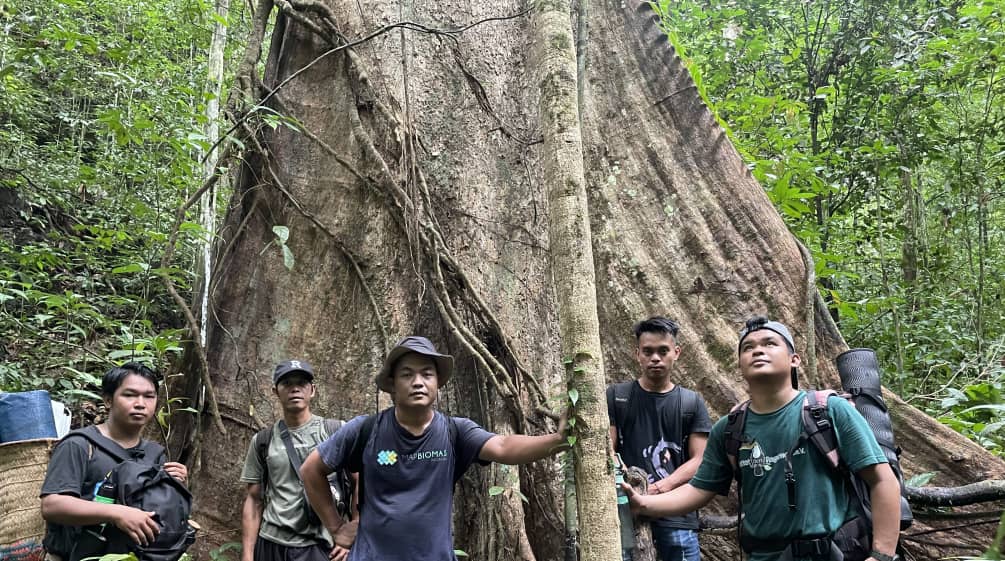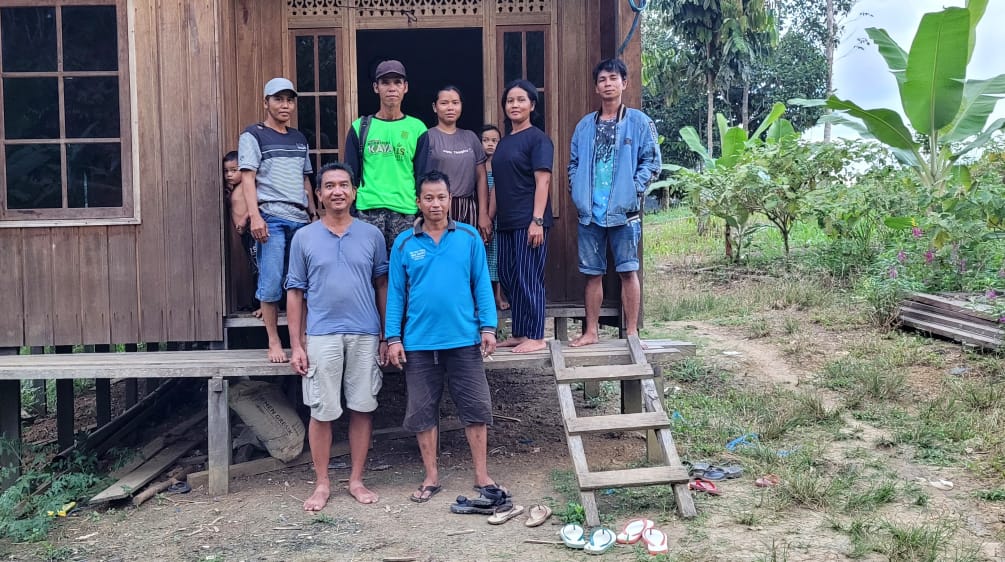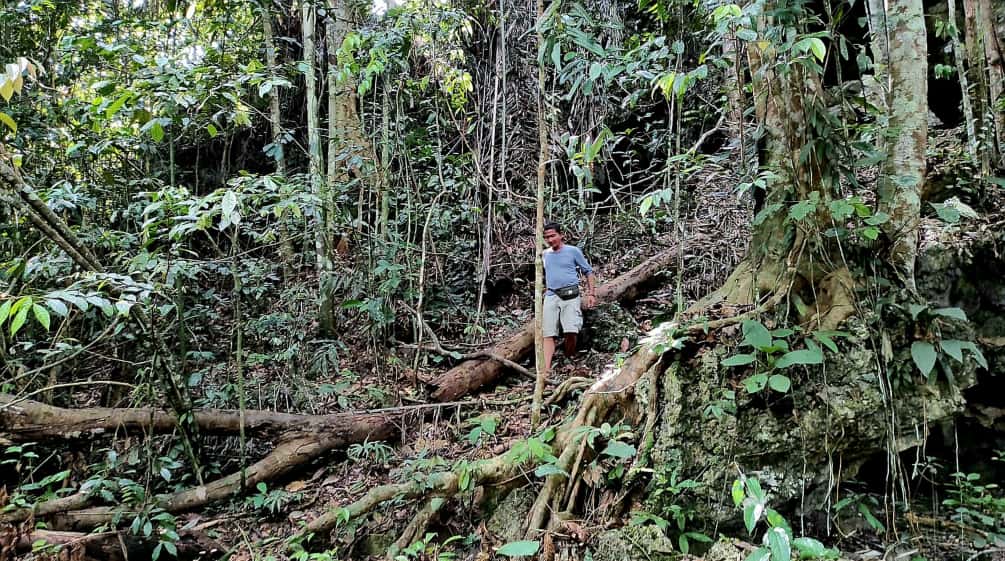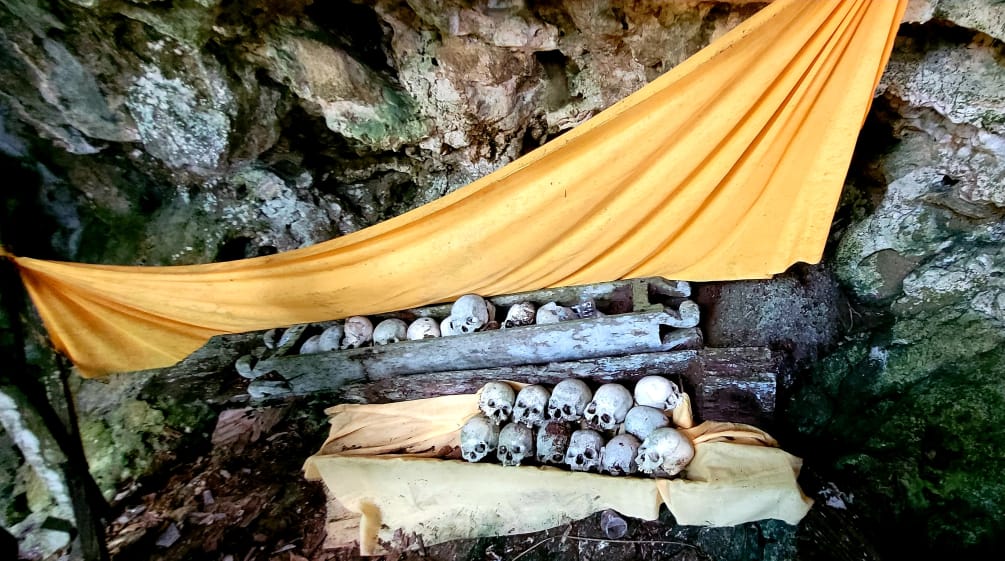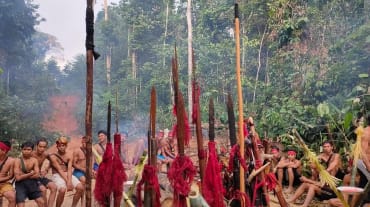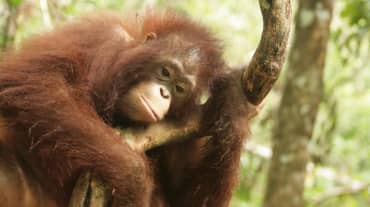Indonesia: The Tongka rainforest is safe!
Nov 20, 2024
The village of Tongka on the Barito River in Borneo now has an official title to nearly 6,000 hectares of ancestral forest, ensuring that the Indigenous community can legally stand its ground against the loggers, mining companies and palm oil plantations eating away at Borneo’s rainforest. This success was achieved with the help of Rainforest Rescue and our partner organization, Save Our Borneo.
Only half of Borneo’s once-dense rainforests remain. The vast island – larger than the state of Texas or three times the size of the United Kingdom – is scarred by oil palm plantations, coal mines and degraded land. Conflicts between Indigenous people and companies are smoldering in thousands of locations.
But there is a way to save the rainforest and its inhabitants in Borneo and throughout Indonesia: by establishing forest rights for Indigenous peoples. We are supporting Indigenous communities and local environmental organizations on this complex journey.
Recognition as a “village forest” (Hutan Desa) under the government’s social forestry program aims to prevent destruction by companies, preserve nature and improve the living conditions of Indigenous people. We have now achieved this in the village of Tongka on the Barito River.
5,812 hectares of intact forest is now the “Tongka Village Forest” (Hutan Desa)
“We have been working towards this wonderful achievement for a long time, discussing and planning, mapping the forest and preparing countless documents. The journey has been long and arduous,” says M. Habibi, Director of Save Our Borneo.
“In 2000, the province of Central Kalimantan had almost ten million hectares of primary forest. Today there are only five million hectares left,” says Marianne Klute of Rainforest Rescue. “This village forest of Tongka is now off-limits to coal and palm oil companies. 6,000 hectares is not much compared to five million, but every hectare counts. There must be – and will be – many more successes like this.”
On the way to the “Tongka Village Forest”
Tongka is the oldest village in Gunung Timang regency, Barito Utara district, Central Kalimantan. It is home to the Dayak Tewoyan Indigenous people. They say that they were the first inhabitants of this area and that their ancestors lived here centuries before the founding of the state of Indonesia.
The forest of Tongka is in excellent condition: There are many mighty trees, although logging companies have already cut down some of the giants of the forest. The biodiversity is impressive, ranging from gibbons and clouded leopards to several species of hornbills.
Tongka is surrounded by intact forest, but threats are closing in: Coal mines are expanding to the south, timber and palm oil plantations to the north and west.
With the recognition of forest rights, threats to nature and people are now averted. While the companies cannot acquire the forest as a concession, the villagers are allowed to use it according to their ecologically sustainable rules. This was not the case previously.
We learned a lot from mapping the forest and writing the expert reports: Tongka’s Hutan Desa, as primeval as it may seem, has many traces of use. There are places with history, such as caves, graves and remnants of ancient settlements. There are sacred areas of spiritual value to the Dayak Tewoyan.
The village has already planned which areas should be protected and which should not be entered, where forest products such as honey or rattan can be obtained, where small fields can be planted, and which places urgently need to be restored.
Their goal is to preserve the forest and use their ecological knowledge as they have done for generations, making Tongka a model for other villages.











